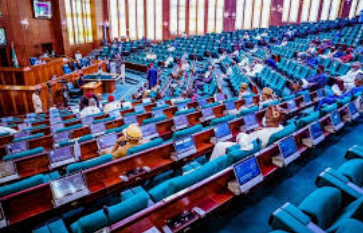In a recent session, the House of Representatives has called on the Central Bank of Nigeria (CBN) to expedite the withdrawal of old naira notes from circulation. This move aims to streamline the currency transition process and reinforce public confidence in the nation’s monetary system.
The CBN had previously initiated a currency redesign policy that involved the introduction of new naira notes to replace the old ones. This decision was aimed at combating inflation, curbing counterfeit currency, and enhancing the overall integrity of the financial system. However, the transition has faced various challenges, including public reluctance to embrace the new notes and logistical issues in ensuring a smooth exchange process.

Reasons for the Withdrawal
1. Public Confusion: Many citizens remain unsure about the status of the old notes, leading to confusion during transactions. The House of Representatives believes that a decisive withdrawal of the old currency will clarify the situation for the public and businesses, making it easier for them to adapt to the new currency.
2. Counterfeit Prevention: The prevalence of counterfeit currency is a significant concern for the Nigerian economy. By withdrawing the old notes promptly, the CBN can reduce the likelihood of counterfeit operations, which undermine the credibility of the currency.
3. Encouraging Economic Formality: The withdrawal of old notes is expected to encourage more citizens to engage with formal banking systems. As people exchange their old notes for new ones, it creates an opportunity for the CBN to integrate more individuals into the formal financial sector, thereby enhancing economic stability.
4. Promoting Confidence in the Financial System: A swift transition to the new currency can help rebuild public trust in Nigeria’s financial institutions. Citizens are more likely to have confidence in a currency that is actively supported by the CBN and free from older, potentially unreliable notes.
Recommendations from the House of Representatives
During the session, lawmakers outlined several recommendations to facilitate the transition:
– Clear Communication Strategy: The CBN should implement a comprehensive communication plan to educate the public on the new notes and the timeline for the withdrawal of old notes. This includes media campaigns, public announcements, and community engagement efforts.
– Timely Withdrawal: The House urged the CBN to set a definitive timeline for the withdrawal of old naira notes. A clear deadline will help businesses and consumers prepare for the transition and ensure compliance.
– Strengthening the Banking Sector: Banks should be equipped to handle the influx of old notes during the exchange period. The CBN should work closely with financial institutions to ensure adequate facilities and resources are in place to manage the process efficiently.
– **Monitoring and Evaluation**: Ongoing monitoring of the transition process will be crucial. The House of Representatives suggested that the CBN establish a task force to evaluate the effectiveness of the withdrawal strategy and address any challenges that arise.
### Conclusion
The House of Representatives’ call for the Central Bank of Nigeria to withdraw old currency notes reflects a proactive approach to ensuring a smooth currency transition. By addressing public confusion, enhancing counterfeit prevention measures, and promoting confidence in the financial system, the CBN can play a pivotal role in stabilizing Nigeria’s economy. As the nation navigates this critical period, effective collaboration between the government, the CBN, and the public will be essential to achieving a successful outcome for the currency redesign initiative.
Support InfoStride News' Credible Journalism: Only credible journalism can guarantee a fair, accountable and transparent society, including democracy and government. It involves a lot of efforts and money. We need your support. Click here to Donate
